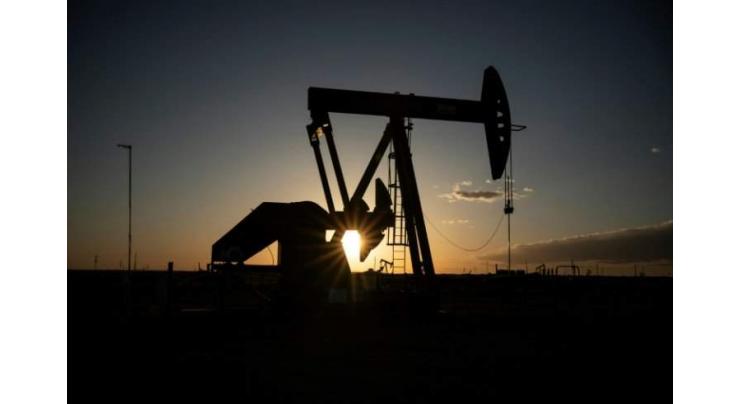
Price Cap On Russian Oil May Lead To Higher Fuel Prices In Long Term - Ex-Regulator
Umer Jamshaid Published December 13, 2022 | 11:59 PM

The West's price cap on Russian oil may lead to a rise in fuel prices in a few years after supply dwindles and Moscow does not have enough revenue to support additional drilling, a former commissioner in the Texas Railroad Commission, the industry regulator in the top oil-producing state, told Sputnik
WASHINGTON (UrduPoint News / Sputnik - 13th December, 2022) The West's price cap on Russian oil may lead to a rise in fuel prices in a few years after supply dwindles and Moscow does not have enough revenue to support additional drilling, a former commissioner in the Texas Railroad Commission, the industry regulator in the top oil-producing state, told Sputnik.
The United States, European Union and other Western allies last week placed a price cap of $60 per barrel on Russian crude as part of an effort to limit earnings they said Moscow could use to fund the special military operation in Ukraine.
Former Texas Railroad Commission commissioner Ryan Sitton said that in 2025-2026 he will be able to explain to everyone why oil production is insufficient.
"Because the president of the United States said let's dump the Russian oil barrels on the market at $60 a barrel, which will both put those barrels on the market and it will drive the price down around the globe. Looks good for an election, it does not look good for the future of those who use oil, which is most of the world," Sitton said.
Sitton pointed out that the price cap plan will raise gasoline prices in the future, in about two years, because in the short-term the cap will drive down revenue and crude oil supply from other countries, hurting their financial resources to continue to drill more wells.
The price cap plan should drop gasoline prices down for a short while before the long-term consequences begin to emerge once Russian supply drops, according to Sitton.
The European Union's $60 per barrel price cap on Russian oil went into effect on December 5, together with a ban on seaborne exports. The cap will be reviewed every two months to remain at 5% below the International Energy Agency benchmark. The G7 nations and Australia have also capped Russian oil exports at $60 per barrel.
Russian Deputy Prime Minister Alexander Novak, commenting on the decision, said that Russia would not accept the price cap, even if the measure forced it to cut oil production. According to Novak, such restrictions are interfering with market forces.
Sitton expects Russia will sell its oil to countries imposing the price cap.
As of Monday night, the West Texas Intermediate (WTI) oil benchmark was $73 a barrel and the Brent Crude benchmark nearly $80 a barrel.
Related Topics
Recent Stories

HEC reviews curricula for environmental sciences degree programme

ICC Asia looking forward to an action-packed Asia Cricket Week

Yuvraj Singh named ICC Men’s T20 World Cup 2024 Ambassador

Greece hands Olympic flame to 2024 Paris Games hosts

Two Kyiv hospitals evacuating over feared Russian strikes

World must act on neurotech revolution, say experts

Charles & Catherine's cancer diagnoses

Champions Alcaraz and Sabalenka through in Madrid Open

King Charles to resume some public duties during cancer treatment: palace

US defense chief announces $6 bn in security aid for Ukraine

Heavy rains cause damage to Spezand-Taftan railway track

Woman stabbed in Israel, attacker killed: police
More Stories From Business
-

Finance minister reviews progress on FBR digitalization
7 hours ago -

US stocks rebound on tech earnings, London hits new record
7 hours ago -

US approves gene therapy treatment for hemophilia
7 hours ago -

KATI president for inclusion of agri sector in tax net
7 hours ago -

Ahsan chairs 13th CPEC-JCC preparatory meeting, reviews arrangements for high-level delegation’s v ..
9 hours ago -

Police to take every step for security of business community: IGP
9 hours ago
-

WB director, Planning minister discuss reforms in development projects
9 hours ago -

IP rights crucial in achieving SDG : Jam Kamal
10 hours ago -

FBR’s data protection efforts commended by OECD assessment team
10 hours ago -

US stocks rebound on tech earnings, London hits new record
11 hours ago -

SECP-IFSB workshop highlights Pakistan's progress in Islamic Finance Development
11 hours ago -

SBP to announce monetary policy on April 29
11 hours ago

















